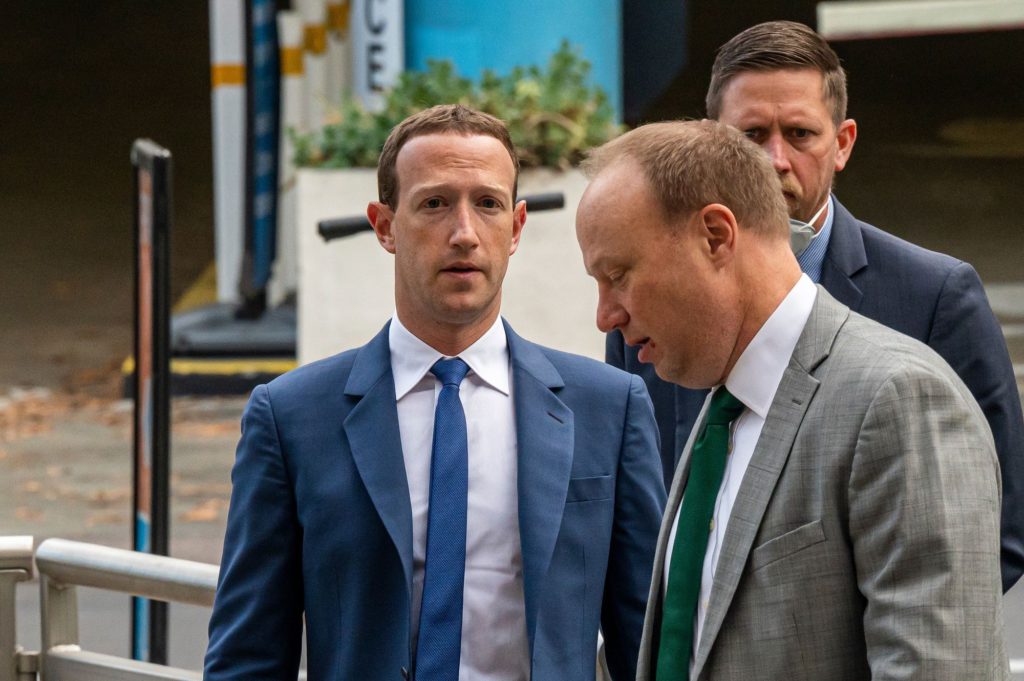Meta Platforms Inc. Chief Executive Officer Mark Zuckerberg says the fact his company doesn’t have a virtual reality fitness app doesn’t keep him up at night, but acquiring it would boost competition and improve such applications.
(Bloomberg) — Meta Platforms Inc. Chief Executive Officer Mark Zuckerberg says the fact his company doesn’t have a virtual reality fitness app doesn’t keep him up at night, but acquiring it would boost competition and improve such applications.
“It’s less important that we own the experiences, than they exist” he said at a trial in San Jose, California, that concluded Tuesday. “By joining us I think we can also help them be able to pioneer the category” and “spur other companies who are doing other good things in this space.”
Zuckerberg took the witness stand to defend his company’s acquisition of virtual reality startup Within Unlimited Inc. against a Federal Trade Commission antitrust suit. His testimony Tuesday is part of Meta’s push to defeat the lawsuit seeking to block the company from acquiring the maker of Supernatural — a popular VR fitness app. Zuckerberg’s testimony follows that of Meta’s Chief Technology Officer Andrew Bosworth a day earlier.
The Federal Trade Commission claims Meta’s plan to buy the competitor will give it an unfair advantage in the burgeoning VR market. The argument is an early test for FTC Chair Lina Khan and her more aggressive stance to antitrust enforcement. Late Monday Meta and Within extended the deadline for the acquisition to close until the end of January, to give US District Judge Edward Davila time to make his decision.
Calling Zuckerberg as a witness, FTC lawyer Abby Dennis asked if in the history of computing, platforms and apps have generally “gone together.” She cited deposition testimony Zuckerberg gave earlier in the case, in which, according to Dennis, he said Facebook intended to build most of the apps for its platform itself.
Zuckerberg agreed that many companies, including Google and Microsoft Corp. build the key apps for their platforms.
“The apps tend to hold the platform together rather than the other way around,” he said. But he resisted Dennis’s suggestion that the acquisition of Within was a significant departure for his company. Facebook, and now Meta, have focused on communication and social interaction apps, he said. “We’re not trying to build every app ourselves,” he said.
The FTC sued Meta in July over the deal, alleging the company was seeking to create a monopoly in virtual reality much in the same way Facebook bought up Instagram and WhatsApp to extend its dominance in social networking. During the Trump administration, the agency sued the company seeking to unwind those deals retroactively. That case is pending.
The Within suit represents the first time the FTC has preemptively challenged a deal by the social media giant, which has bought more than 100 smaller companies over the past decade. Tech companies and investors are closely watching the suit amid concerns the case may make startup acquisitions more difficult.
In closing arguments Tuesday, FTC lawyer Dennis said Meta has acquired nine virtual reality studios in the past three years, including three since its acquisition of Within was announced.
She urged Davila to grant the agency’s request for an order blocking Meta’s acquisition as it pursues a lengthier, administrative proceeding starting next month. She challenged Meta’s argument that if Davila sides with the FTC that the company would have to walk away from the acquisition.
“The deal is dead only if Meta wants it to be,” Dennis said. The court should reject Meta’s argument that “the FTC should not be able to challenge any action because challenges take time,” she said.
Meta’s lawyer, Mark Hansen, told Davila that his decision will determine the outcome of the deal. “This is the trial in this case,” he said, adding that Meta can’t wait two years for a longer administrative proceeding to conclude.
The Within deal is a “procompetitive acquisition” that will improve the “fitness mission” and VR capability and availability for consumers, he said. Hansen added that the deal is important for startups aiming to be acquired. “If those opportunities weren’t available, a lot fewer people would take the risk,” he said.
“The FTC has no case,” Hansen said. “No court has accepted these theories for decades, even with better facts.”
The case is FTC v. Meta, 22-cv-04325, US District Court for the Northern District of California (San Jose).
–With assistance from Leah Nylen.
(Updates with closing arguments starting in tenth paragraph)
More stories like this are available on bloomberg.com
©2022 Bloomberg L.P.











